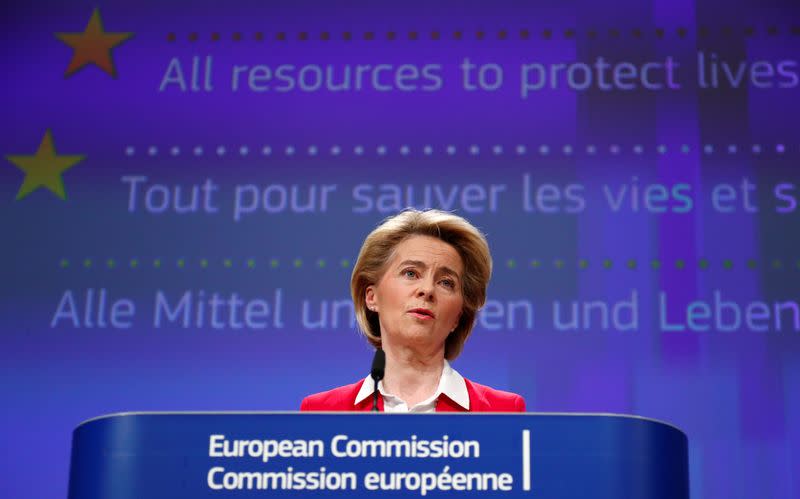Kill the virus, not democracy - EU tells Hungary
By Gabriela Baczynska and Foo Yun Chee
BRUSSELS (Reuters) - The European Commission told Hungary's Prime Minister Viktor Orban on Thursday that emergency powers he has assumed to combat the coronavirus outbreak risk upending democracy and must be subject to proper parliamentary and media scrutiny.
On Monday, Orban secured an open-ended right to rule by executive decree. Also, under a new law anybody deemed to be hindering measures to curb the spread of the virus or spreading false information about it faces up to five years in jail.
More than a dozen EU member states including Germany, Italy, Spain and France have expressed concern that the new law could be used to muzzle journalists critical of Orban.
"This is the time to kill coronavirus - not the time to kill democracy," said Vera Jourova, the Czech member of the executive Commission who is responsible for upholding EU values and transparency.
"When governments gain more powers to manage a crisis, they should be under democratic control. This is normally done by the parliaments and independent media," she told Reuters.
"These are the safeguards that should be present when member states start emergency regimes."
The president of the European Commission, Ursula von der Leyen, also said Orban's powers may be excessive.
"These emergency measures have to be limited to what is necessary, they have to be strictly proportionate... They should not last indefinitely and very importantly they should be subject to regular scrutiny," she told a news conference.
EU UNITY TESTED
Donald Tusk, the leader of the centre-right European People's Party in the European Parliament, said in a letter to members of the grouping that they should consider once again expelling Orban's Fidesz party once the coronavirus crisis ends.
However, previous attempts to expel Fidesz have failed and some want to tread cautiously with Orban, mindful that the coronavirus crisis is already testing EU unity. Member states disagree over the scale of support needed for their battered economies, over supplies of medical equipment and emergency checks on what are normally Europe's open internal borders.
Since taking power in 2010, Orban has used legal levers, ownership changes and advertising revenues to boost state control of the media. The EU has taken Hungary to court for its muzzling of non-governmental organisations, media and academics, but has had little success in forcing Orban to change tack.
Jourova said "the risk that some states or governments could use the corona crisis to accumulate more power" meant Brussels would push even harder to make access to EU funds in its next joint budget for 2021-27 conditional on upholding democracy.
Speaking by phone from her home in Brussels, where like most Europeans she is in lockdown, Jourova said: "The Hungarian parliament should continue doing its job of parliamentary control and the media should be free to do their job."
"Democracy is not an obstacle to solving the crisis. Democracy must be present and fundamental rights of people must not be put aside."
(Additional reporting by Jan Strupczewski, Marine Strauss and Philip Blenkinsop, Writing by Gabriela Baczynska; Editing by Gareth Jones)




